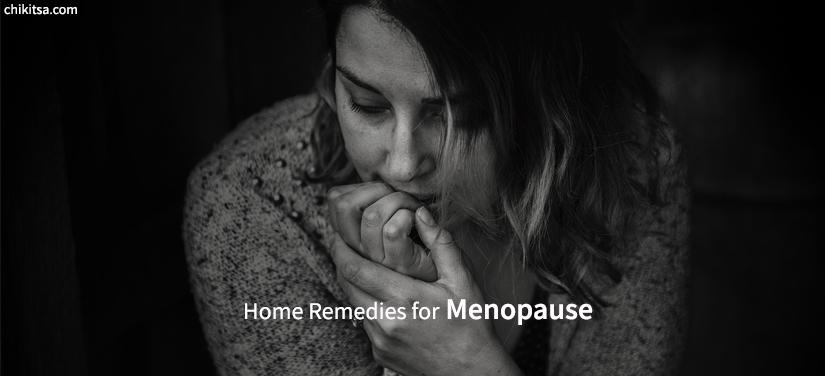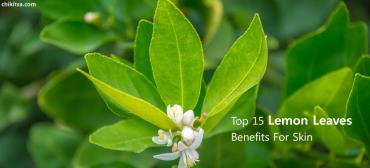11+ Natural Home Remedies for Menopause

Menopause is not a disease or illness; it is a crucial phase of a woman’s life cycle where she undergoes major physical, emotional, mental and hormonal changes. It is at this time when the menstrual cycle of a woman ceases completely. Menopause marks the end of a woman’s fertility. The word ‘climacteric’ is also often used for menopause.
These symptoms occur due to decreasing levels of estrogen in the blood (Estrogen plays a vital role in maintaining fertility and development and maturation of a woman). Symptoms of menopause last for a few years even after complete cessation of the menstrual cycle. In India, the average age for menopause to occur in women is 45-50 years. But, in some women, it may also occur as early as the 30s or as later as 60s.
Symptoms of Menopause:
- Irregular vaginal discharge and irregular or heavy menses
- Hot flushes – sudden building up and release of heat from the body.
- Palpitations
- Night sweats and insomnia
- Change in thermal tolerance
- Mood swings and irritability
- Uro-genital symptoms such as vaginal itching and dryness and urinary complaints
- Dryness of skin
- Physical changes such as wrinkling of skin, hair fall and deposition of fat around hips and buttocks area.
- Sexual response tends to decline as and when menopause progresses
This transition period lasts from less than 12 months to 3-4 years. Symptoms and effects of menopause vary in different women. These symptoms are associated with menopause but do not necessarily correspond to levels of estrogen in the blood.
Terms like ‘Peri Menopausal’ is the duration during which a woman is undergoing changes of menopause, and ‘Post Menopausal’ is the used to indicate that a woman has completed her menopause and for certain symptoms which occur as a result of menopause.
How to Diagnose?
Menopause is not a medical condition. It is a transition phase through which each woman goes through. Therefore, there are no specific tests to diagnose menopause. However, when menopause occurs prematurely, conditions such as premature ovarian failure or secondary conditions, these can be detected through diagnostic tests. In order to help women sail smoothly through this major transition, Hormone Replacement Therapy (HRT) is often sought. They help to relieve symptoms of menopause.
HRT is not only Expensive But also has Potential Side Effects and Complications, such as
- Headache, Nausea and Bloated Abdomen
- Breast Cancer and Uterine Cancer
- Stroke
- Hypertension and Coronary Artery Disease
Due to these risks, more and more women are now seeking the usage of home remedies and alternative medicine therapy to get through yet another change of life.
During and after menopause, a woman has to be very particular about having the right kind of a diet. Estrogen in a woman’s body plays a protective role against bone fractures, cardiac problems and cholesterol troubles. In absence of this hormone, certain dietary changes must be made to maintain the health of heart, blood, bones and skin.
Home Remedies for Menopause:
1. Yoga Meditation and Breathing Exercises: It is essential to get trained in these and then practice them at home. These measures are extremely helpful keeping mood fluctuations and irritability in view. These not in help in relieving stress, but also maintain physical health of a menopausal woman.
2. Pelvic Floor Exercises: These prevent pelvic muscles from becoming lax.
3. Plenty of water to relieve dryness of skin and to prevent urinary complaints.
4. Fresh Seasonal Fruits and Green Leafy Vegetables: These provide the necessary fiber and nutrients in the diet to protect against cardiac problems. They also help in reducing constipation and weight gain.
5. Natural Probiotics: Such as curd, cheese, buttermilk to maintain healthy flora in the gut, which in turn provides immunity.
6. Foods Which Contain Phytoestrogens (Dietary Estrogens): Soya beans, nuts, flax seeds, sweet potatoes, carrots, berries, oats, pulses and legumes. These are protein rich substances which maintain integrity and function of our vital organs. These food substances also help in relieving the most troublesome symptom of menopause, which is, hot flushes.
In absence of estrogen production in the body, these dietary estrogens can prevent cancer in menopausal women
7. Omega 3 Fatty Acids: This is widely available in fish, cod-liver oil, walnuts
Omega-3 fatty acids have proven effects on:
- The heart by keeping levels of cholesterol at optimal levels, maintaining a normal blood pressure, preventing clot and plaque formation in major blood vessels in the body.
- Fighting auto-immune diseases
- Maintaining mental health by fighting depression and mood swing.
- Reducing risks of developing cancer.
- Prevent fat deposition in the liver.
- Maintains bone health by preventing osteoporosis and reducing risks of fractures
- Improving sleep – sleep deprivation is associated with high risk of developing obesity, depression and diabetes.
- Good for skin
8. Avoid consuming alcohol and tobacco, packaged foods, refined oils and food containing added sugar and preservatives. Such foods build up cholesterol levels and increase the risk of having Coronary Artery Disease.
9. Avoid coffee, tea and spicy food.
10. Limit salt intake to prevent the risk of having high blood pressure.
11. Prefer wearing loose clothing to reduce irritability from hot flushes.
12. Natural calcium supplements – sesame seeds (white, to be soaked in water overnight and crushed before eating in morning), soya bean, cheese, spinach, milk and milk products. Sun exposure from 7-10am daily produces natural vitamin D from the skin. These help to maintain bone mineral density naturally and prevent fractures.
Menopause is a physiological event for every woman. There are plenty of ways to manage menopausal complaints and to maintain a fairly healthy condition even after menopause. It is essential for a menopausal woman to undergo regular health checkups every year.
To summarize, a low-fat diet, rich in proteins and calcium, along with a decent amount of physical activity will be beneficial to women belonging to menopausal age group. These recommended lifestyle and dietary changes are well-researched and can actually reduce the risks of developing heart and bone related illnesses in menopausal women.








